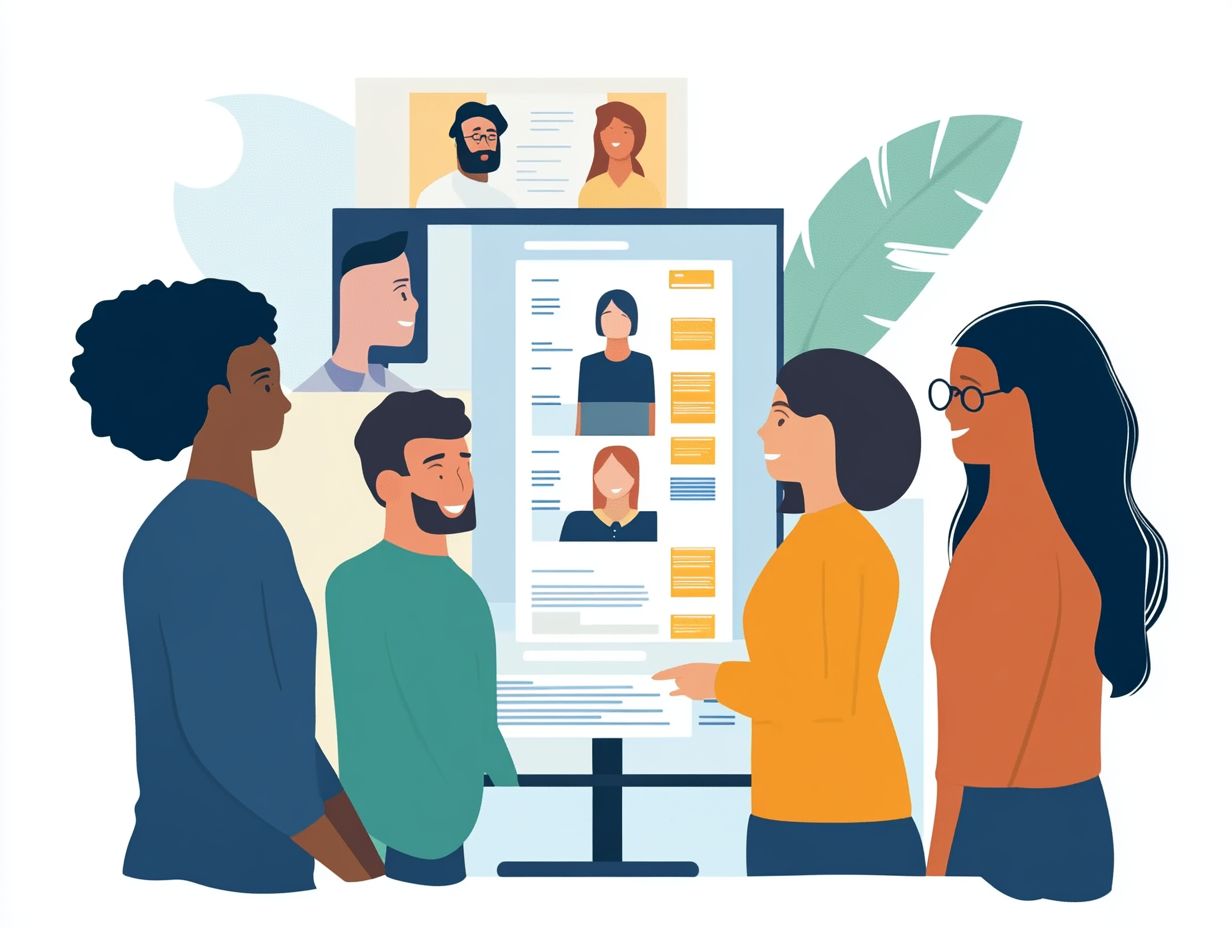Strategies for Personalizing Customer Interactions
In today s competitive landscape, personalized customer interactions are not just important; they are essential for success. This article reveals how you can transform your customer interactions today! You will unlock effective strategies for segmentation, targeted communication, and customized offerings. Discover the tools and technologies that can amplify your personalization efforts.
Key metrics to measure the impact of these strategies will also be highlighted. This ensures that your business thrives in a customer-centric world.
Dive in to uncover how personalization can revolutionize your customer service experience.
Contents
Key Takeaways:

Personalization is crucial in customer service as it creates positive, memorable experiences for customers. Understanding your customers through data collection and analysis is essential for effective personalization. Strategies such as segmentation, personalized communication, and customized offerings can help personalize interactions and foster customer loyalty.
The Importance of Personalizing Customer Interactions
Grasping the significance of personalizing customer interactions is essential for any business looking to elevate customer engagement and satisfaction.
By harnessing tools like data analytics and smart technology, you can craft tailored experiences that address the unique needs and preferences of your customers. This strategy cultivates loyalty and propels business growth by aligning your marketing efforts with each individual customer journey.
The result? More relevant interactions and an enhanced perception of your brand.
Why Personalization Matters in Customer Service
Personalization is pivotal in customer service. It directly enhances customer satisfaction and loyalty, fostering a deeper connection between your brand and consumers.
By tailoring interactions and offerings to address individual needs, you can proactively tackle issues before they escalate. Transform potential complaints into valuable opportunities for growth.
For example, a renowned retail chain recently adopted personalized recommendations based on past purchases, leading to an impressive 20% increase in customer retention.
Research shows that personalized marketing dramatically boosts engagement metrics. 80% of consumers are more likely to make a purchase when they receive tailored experiences.
Such strategies elevate customer experiences and cultivate brand advocates who feel genuinely understood and appreciated.
Understanding Your Customers
Understanding your customers is the cornerstone of effective marketing strategies. This insight allows you to tailor your offerings to align perfectly with diverse customer preferences and purchasing behaviors.
Collecting and Analyzing Customer Data

Collecting and analyzing customer data is essential for you to develop audience insights that lead to personalized experiences and refined marketing strategies.
To achieve this, consider utilizing a variety of techniques, such as:
- Surveys that gather direct feedback
- Customer Relationship Management systems that help manage customer interactions
- The analysis of online behaviors through web analytics
By leveraging these diverse sources, you can amass comprehensive data. Process this data with sophisticated analytics tools to discern patterns and trends. This allows you to create tailored experiences that resonate with the unique preferences of your customers.
As a result, you will enhance engagement and cultivate brand loyalty, driving long-term success for your business.
Personalization Strategies
Implementing effective personalization strategies requires a multifaceted approach. This includes audience segmentation, dynamic content, and tailored communication, all designed to elevate the customer journey.
By thoughtfully considering these elements, you can create an experience that resonates deeply with your audience, fostering engagement and loyalty.
Start personalizing your customer interactions today and watch your business thrive!
Segmentation and Targeting
Segmentation and targeting are essential for personalized marketing. They help create customer profiles for effective advertising.
Breaking your audience into distinct groups allows you to tailor your messages. Consider techniques like:
- Demographic segmentation focusing on age, gender, and income.
- Psychographic segmentation exploring lifestyle and values.
- Behavioral segmentation analyzing purchasing habits.
These strategies enhance your marketing effectiveness. Customers feel valued when they receive personalized marketing.
Personalized Communication
Personalized communication cultivates deeper customer engagement. Tailor your messages and email campaigns to resonate better.
Understanding individual preferences helps craft meaningful messages. Use customer data, like past purchases and browsing habits, to segment your audience.
For example, a retail brand sending personalized recommendations can boost conversion rates.
Email campaigns with birthday discounts or anniversary offers foster loyalty. Customers appreciate feeling recognized by your brand.
Customized Offerings and Recommendations

Customized product recommendations boost customer satisfaction. They create unique experiences tailored to individual preferences.
By using customer data, you can personalize offerings. This turns a mundane shopping experience into an exciting adventure.
For instance, Coca-Cola uses data analytics to craft campaigns that resonate with consumers desires.
Similarly, Netflix utilizes algorithms to recommend shows based on viewing habits. This helps align content with subscribers’ tastes.
These examples show how companies can use customer insights to foster brand loyalty through meaningful connections.
Implementing Personalization in Your Business
To implement personalization successfully, you need the right tools and technologies. Use Customer Relationship Management (CRM) systems and artificial intelligence to enhance customer engagement.
These innovations help create tailored experiences that resonate with your audience and drive results.
Tools and Technologies for Personalization
Using advanced tools like CRM systems and data analytics is crucial for effective personalization strategies. They help you understand customer behavior and preferences.
A CRM platform gathers data from multiple touchpoints, giving you a complete view of the customer journey. This enables targeted campaigns for specific audience segments.
Tools like HubSpot and Salesforce offer features for automated follow-ups and personalized content delivery, enhancing customer experiences.
By leveraging these insights, you can build stronger relationships and boost customer loyalty and satisfaction.
Training and Empowering Employees
Training and enabling employees is essential for delivering personalized marketing and enhancing customer interactions. This ultimately leads to improved customer service.
When your employees undergo thorough training, they gain valuable insights into customer needs and preferences. This deep understanding fosters confidence among your staff.
Empowered employees personalize their approach, using their knowledge to offer tailored solutions and recommendations. Engaged interactions build stronger relationships with clients and boost loyalty and satisfaction.
In a fast-paced market, trained personnel become vital touchpoints. They transform routine exchanges into meaningful connections that resonate with customers.
Measuring the Impact of Personalization

Measuring the impact of personalization is essential. It evaluates effectiveness in elevating customer satisfaction and loyalty.
By analyzing these measurements, you can gain insights into how personalized experiences resonate with your audience. This drives more meaningful engagement and results.
Key Metrics to Track
Tracking key metrics helps you understand customer satisfaction and assess your marketing strategies. Techniques such as customer satisfaction scores provide insights into how consumers perceive personalized experiences.
Monitoring engagement rates shows how effectively your tailored content resonates with target audiences. This unveils trends in user behavior and preferences.
Concentrating on these indicators refines your approaches. This fosters stronger relationships with your audience, leading to increased loyalty and growth.
Frequently Asked Questions
What are some strategies for personalizing customer interactions?
1. Use customer data: Utilize customer data to create personalized interactions, like addressing them by name and recommending relevant products.
2. Implement segmentation: Group customers by behaviors and interests to tailor interactions and offers.
3. Offer personalized promotions: Provide discounts based on purchase history to make customers feel valued.
4. Use personalized communication: Engage with customers on their preferred platforms using their data.
5. Provide proactive support: Use past data to anticipate customer needs and offer assistance.
6. Utilize personalized feedback: Collect feedback to enhance future interactions and customer experiences.






